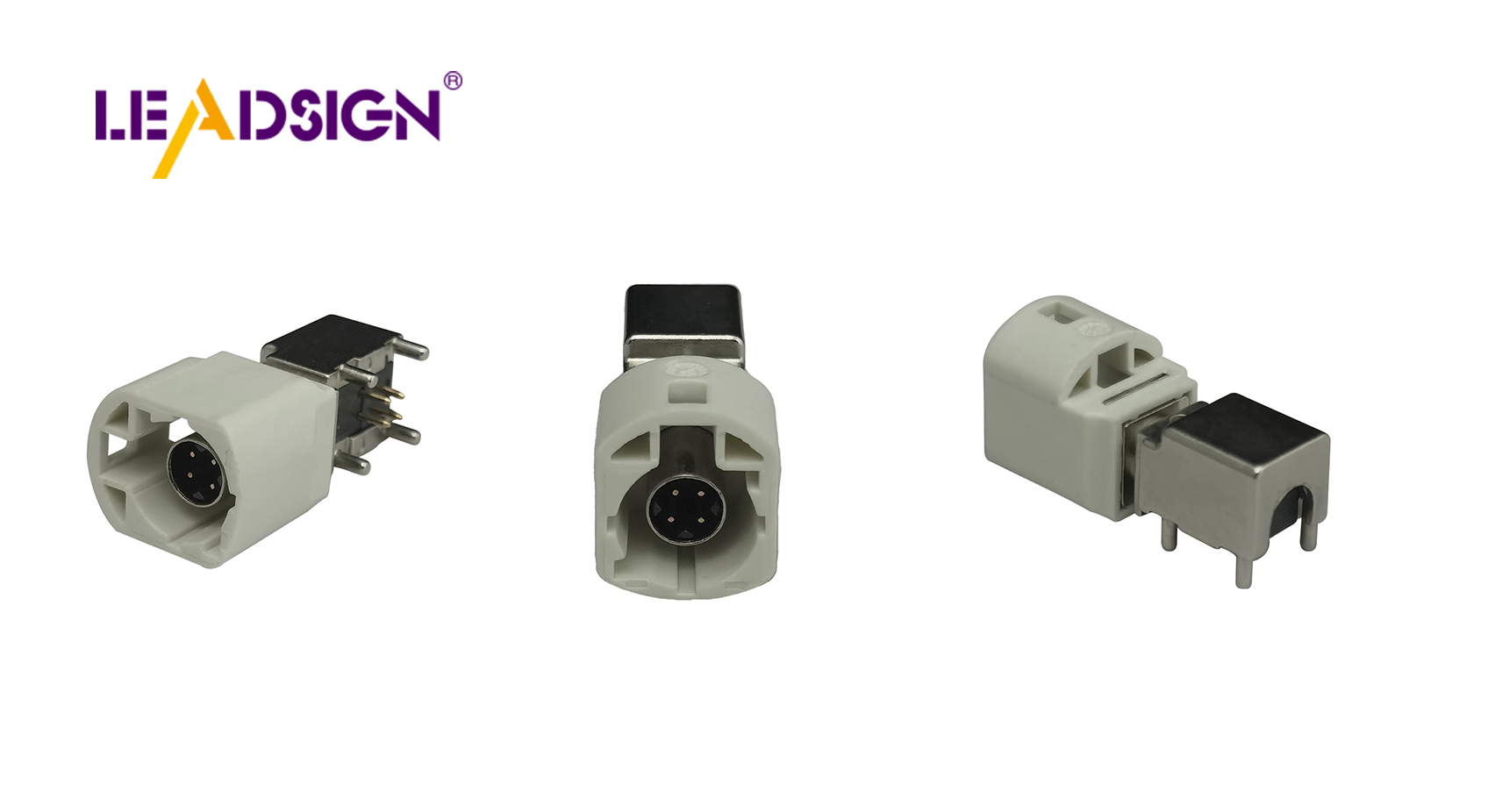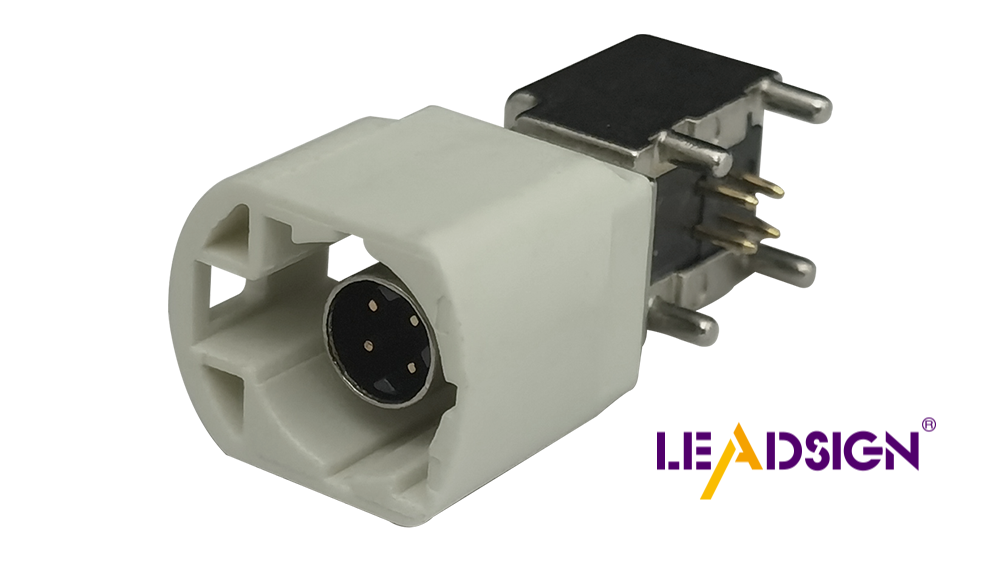How to Identify and Replace Automotive Wiring Connector Types

Understanding different automotive electrical connectors types is crucial for maintaining your vehicle's electrical system. These connectors play a vital role in facilitating the smooth flow of electricity, powering essential components like lights and radios. However, issues such as rust, damage, or poor connections can disrupt this flow. Replacing faulty connectors not only resolves these issues but also enhances the safety and reliability of your vehicle. By familiarizing yourself with various automotive electrical connectors types, you can efficiently address problems and ensure optimal performance of your car.
Identifying Automotive Electrical Connectors Types

Knowing different automotive electrical connectors types is important for car electronics. These connectors help electricity reach where it needs to go. Let's learn about some common kinds and how to spot them.
Common Types of Automotive Electrical Connectors
Blade Connectors
Blade connectors are flat metal pieces that fit into slots. They are used in cars because they are simple and work well. They connect securely but can be removed easily when needed.
Bullet Connectors
Bullet connectors have a round end that fits tightly into a socket. They are popular in car wiring because they connect quickly and stay put. Their shape stops them from coming loose, even if the car shakes.
Pin Connectors
Pin connectors have many pins fitting into sockets. They are used in complex systems needing many wires connected at once. Pin connectors make sure connections stay strong, often found in engine parts.
Tools and Techniques for Identification
Visual Inspection
Look closely at the connector's shape, size, and pins or slots number. Check for labels showing what type it is. This method is easy and doesn't need special tools.
Using a Multimeter
A multimeter checks if connectors work by testing continuity and resistance. It helps find out if a connector works right, useful for fixing problems and making sure connections hold.
Decision-Making: Repair or Replace?
Assessing Connector Condition
Before fixing or changing a connector, check its condition. Look for wear, rust, or damage signs. If it's badly worn out, replacing it might be best for safety.
Cost-Benefit Analysis
Think about repair costs versus buying new ones. Fixing by depinning can save money sometimes. But if it's too damaged, getting a new one like Amphenol A Series panel mount connectors or TE Connectivity DEUTSCH connectors ensures good performance.
By knowing these things about automotive electrical connectors, you can decide how to keep your car's system working well. Whether you fix or replace them, keeping connections strong is key for your vehicle's best performance.
Getting Ready to Replace
Before changing car wiring connectors, gather tools and supplies. This makes the job easy and quick.
Collecting Needed Tools and Supplies
Important Tools
Wire Strippers: Take off wire covers without harm.
Crimping Tool: Attach connectors tightly to wires.
Screwdrivers: Have flathead and Phillips for screws.
Multimeter: Check if connections work right.
Suggested Supplies
Replacement Connectors: Get ones that fit old types.
Electrical Tape: Wrap connections for safety.
Heat Shrink Tubing: Adds extra cover to wires.
Cable Ties: Keep wires neat and untangled.
Staying Safe
Safety is key with car electrical systems. Follow these steps to stay safe.
Unplugging the Battery
Always unplug the battery before working on it. This stops shocks and keeps the system safe. Find the negative end, loosen with a wrench, take off cable, keep it away from battery.
Safe Handling of Electrical Parts
Wear Safety Gear: Use gloves and goggles for protection.
Avoid Metal Tools: Use insulated tools near electric parts.
Work in Bright Light: See clearly to avoid errors.
By getting ready well and being careful, you can change car wiring connectors safely and easily. This helps your car's electric system last longer and work better.
Doing the Replacement
Changing car electrical connectors needs steps for a good fit. Follow these steps to do it right.
Taking Out the Old Connector
Unplugging the Wires
First, unplug wires from the old connector. Find the locking tabs on it. Press or lift these tabs to let go of the connector. Gently pull it away from the wires. Don’t pull too hard to avoid breaking anything.
Cleaning Up
After removing, clean where it was connected. Use a soft brush or air to clear dirt and dust. This keeps things clean for the new connector and helps it work better later.
Putting in the New Connector
Connecting Wires
With a clean spot, connect wires to the new connector. Match wires with slots or pins on it. Push each wire into its place snugly. Use a crimping tool to hold them tight. This makes sure they stay connected well.
Locking It In
After connecting, lock it in its socket. Listen for a click or feel a snap to know it's set right. Check by gently pulling wires; they should stay put.
Testing It Works
Checking If It Works
Once done, test if everything works right. Hook up the battery and turn on things in the car that use electricity. See if what’s connected works okay now.
Fixing Problems
If not working, find out why not. Look for loose wires or wrong spots plugged in. Use a multimeter to check if electricity flows right through them all.
By doing these steps, you can change car connectors well and keep your car's electric system strong.
Extra Things to Think About
When working with car connectors, think about a few things. These help you replace and fix them right.
Picking the Right Connector
Choosing the right connector is very important. Here are some tips:
Fits Your Car
Make sure the connector fits your car model. Different cars need different connectors. Using the wrong one can cause problems. Check your car book or ask an expert to be sure.
Strong and Lasting
Pick connectors made from good materials. Strong ones last longer and don't break easily. They should lock well and not rust.
When to Ask for Help
Sometimes you might need a pro's help. Here’s when to ask:
Hard Wiring Systems
If your car has tricky wires, it’s hard to change them alone. Experts know how to do it without breaking anything.
Ongoing Problems
If problems keep happening after changing connectors, there might be a bigger issue. A pro can find and fix it so everything works well.
By thinking about these things, you can take care of car connectors better. Whether picking the right one or knowing when to get help, these tips keep your car running smoothly.
Understanding car wiring connectors is important. First, look at the connector or use a multimeter to know its type. Then, decide if you should fix or change it based on how it looks. Lastly, replace it carefully and make sure everything is connected well.
Checking your connectors often stops surprise problems. Someone said fixing car wires without knowing can be scary. Keeping connectors in good shape keeps your car safe and working well.
Taking care of connectors is very important. It makes your car's electric parts last longer and work better. Always be safe and careful when working with car wires.
See Also
Exploring HSD Connectors in Automotive Technology
Navigating Ford Fakra Connectors
Significance of Fakra Connectors in Contemporary Cars

